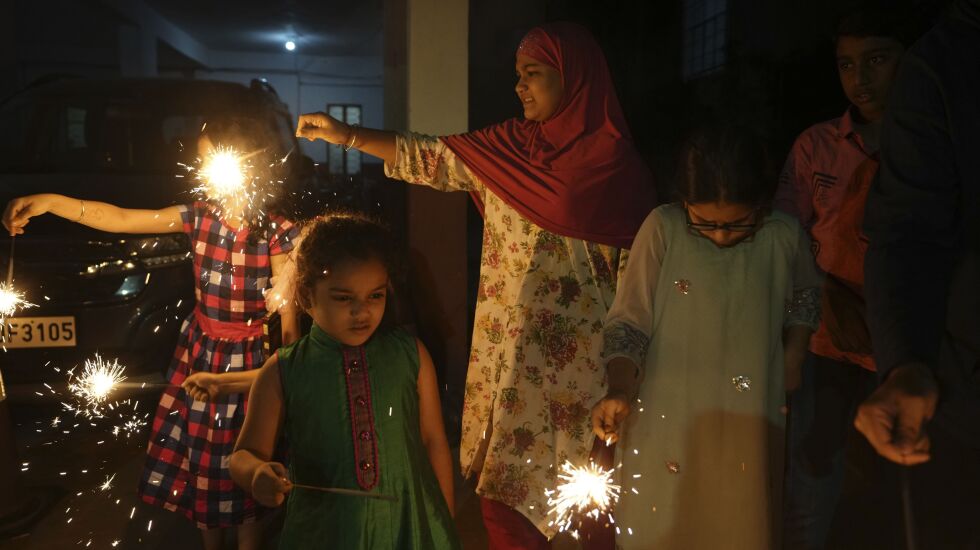
Barely anyone reads the fine print.
Couple that negligence with many Americans’ ignorance or indifference to Islamophobia here and abroad, and it’s no surprise that the Illinois General Assembly unanimously approved legislation containing problematic language when setting up a seemingly innocuous Indian American Advisory Council.
The creation of a group designed to advise Gov. J.B. Pritzker on policy matters affecting the Indian community in Illinois shouldn’t be cause for concern. But when the discombobulated text establishing such a council opens with discriminatory and false descriptors, the red flags should have been as conspicuous as a traditional Indian bride’s wedding lehenga.
”Indian” means a person descended from any of the countries of the subcontinent that are not primarily Muslim in character, including India, Bhutan, Nepal, and Sri Lanka, reads the portion of the bill the governor signed into law over the summer.
Apart from the term sometimes used to characterize Indigenous tribes in North America — and inappropriately named sports teams — as far as I know, an Indian is a native or inhabitant of India or someone of Indian descent, irrespective of his or her religious background.
And Bhutan, Nepal, and Sri Lanka are separate independent nations and their citizens don’t want to be wrongfully identified as Indians.
Many of them can certainly trace their ancestry back to India, but so can plenty of others in the four Muslim-majority South Asian countries not mentioned in House Bill 4070.
Conflating India with select parts of South Asia is misleading and offensive enough. But then deliberately writing off the subcontinent’s countries that are “Muslim in character” — Pakistan, Bangladesh, Afghanistan and the Maldives — evokes the bigoted tone of a relatively new citizenship law in India that excludes Muslim immigrants.

Theoretically, someone like me, who is both Muslim and of Indian descent, could potentially serve on the council under the current law.
Even so, there appears to be intent to “construct a new social identity” that could further marginalize Indian Muslims and leave them wondering if the council would be a safe space, said Allison Skinner-Dorkenoo, an assistant professor of psychology at the University of Georgia.
Mischaracterizing “who counts and doesn’t count” as an Indian also could have “downstream consequences” in shaping future policies, added Skinner-Dorkenoo, whose research focuses on how biases are established and reinforced through subtle messaging.
While our elected leaders dropped the ball with the Indian American Advisory Council, a handful of eagle-eyed South Asian residents who were disturbed by the questionable wording contacted state Sen. Ram Villivalam, D-Chicago, in the fall to express their concerns.
Villivalam, who is Indian, said he takes full responsibility for overlooking the offensive phrasing when he took sponsorship of the legislation in the Senate after it was drafted by the staff of state Rep. Seth Lewis, R-Bartlett.
“There’s no ifs, ands or buts. This was a mistake. Period,” said Villivalam, who has since embarked on a mission to eliminate the discriminatory language in a follow-up “trailer” bill that would replace the council with a more encompassing South Asian American Advisory Council.
The updated bill was approved by the Senate last month with three objectors, including former Republican gubernatorial candidate Darren Bailey, R-Xenia.
Lewis says he’ll vote for the bill when the House is expected to take up the matter in January. He went on to admit the blunder, but doesn’t fully comprehend why many find the particular sentence in the present legislation exclusionary and harmful.
Lewis wouldn’t divulge the brainchild behind the “not primarily Muslim in character” subsection and offered that it was only inserted for the sake of being “efficient” since the state already has a Muslim American Advisory Council.
During a sometimes heated interview, Lewis volunteered that he is married to an Indian woman and debated with me the number of countries in South Asia that have a predominately Muslim population. He was particularly adamant in insisting that Bangladesh is not a Muslim-majority country. It is, and anyone with even a rudimentary knowledge about India’s post-partition history and the formation of Pakistan and Bangladesh should know that.
In present-day India, right-wing Hindu nationalists are continually unleashing their wrath on religious minorities, oppressed castes and other marginalized groups. Muslims, in particular, are on the receiving end of most of the physical and verbal attacks, and there is a full-fledged campaign to disparage and erase Muslim culture and customs.
As we’ve seen with the curious verbiage in the Indian American Advisory Council legislation and the drama surrounding the failed 2021 City Council resolution on India’s human rights abuses, the prejudicial agenda overseas is taking a powerful hold in Illinois politics.
Our elected leaders need to yank their heads out of the sand.
Otherwise it will be clear they are choosing to align themselves with those who are “not primarily just in character.”
Rummana Hussain is a columnist and member of the Sun-Times Editorial Board.
Want to write a letter to the editor or an op-ed? Check out our guidelines.







